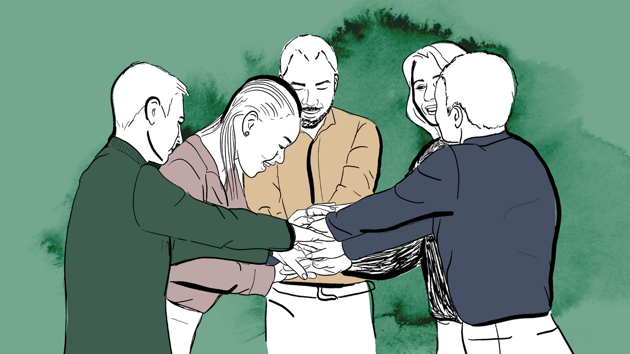If you have been subjected to unwanted behaviour
No one should have to be subjected to harassment or sexual harassment during their studies. This same applies to victimisation, which is commonly known as ‘bullying’. If the University becomes aware of harassment, sexual harassment or victimisation, we have a responsibility to investigate and to ensure that it stops.also has a responsibility to investigate harassment and stop undesirable behaviour.
This page contains information about what you can do if you have been subjected to unwanted behaviour that:
- violates your dignity and is related to one or more of the seven grounds of discrimination (What is discrimination?);
- is of a sexual nature and violates your dignity;
- makes you feel unsafe and vulnerable; or
- harms you.
Things you can do
Talk to someone about what you have experienced
If you feel that you have experienced discrimination, an initial step could be talking to someone you trust. Talking about your experience can help you to remember and put into words what has happened to you. It can be hard to know what type of victimisation or unfair treatment you feel you have experienced. But remember that it is you, the victim, who decides whether the behaviour or the action is unwanted and causes discomfort.
Write down and document what has happened
Don’t wait before documenting the incident. Write down what happened and when. Save any text messages or emails. This will help you to remember times, locations and any other details that support your story. It will also make it easier to investigate any victimisation.
Speak out about unwanted behaviour
In order for what has happened to be deemed harassment or sexual harassment, the person carrying out the harassment must understand that their behaviour constitutes victimisation. This means that it is important for you to speak out and make it clear to the person carrying out the victimisation that their behaviour is unpleasant and unwelcome.
In some cases of harassment and sexual harassment, the circumstances are so clear that you do not need to speak out. In other words, you do not need to tell the person who is harassing you that their behaviour is unwanted. This includes someone victimising you by calling you derogatory racist or sexist names, or subjecting you to various forms of touching or abuse.
Tips when speaking out about unwanted behaviour
It can be hard to speak up against unwelcome behaviour. This is particularly true if the person who carried out the unwanted behaviour is someone with more power.
An initial step could therefore be to write down what has happened in a timeline, describing what happened and when. When you feel ready to tell the person who carried out the unwanted behaviour, it’s a good idea to have someone with you who you feel safe with.
You can speak out about unwanted behaviour by:
- writing down your message and sending an email or a text message; or
- talking to the person who has subjected you to unwanted behaviour.
Help and support
When someone has behaved in an unwanted way towards you, this can be both confusing and difficult to deal with. However, support is available.
Getting help from your student union
Umeå University has three student unions which work to ensure that students can influence their study situation. They can offer support and advice if you are unsure about how to deal with something that has happened.
Student unions are here for you
If you need counselling
If you need someone to talk to, you can contact the Student Health Service. You can also contact the University Chaplaincy, which offers counselling to everyone at Umeå University, regardless of their philosophy or religious affiliation.
Contact the Student Health Service
Contact the University Chaplaincy
If you submit a report, the University will investigate what happened
If the University finds out that a student has been subjected to harassment, sexual harassment or victimisation, we have an obligation to investigate the circumstances. The aim of this investigation is to find out what happened, and to put a stop to the unwanted behaviour.
Find out how to submit a report and how an investigation will take place



